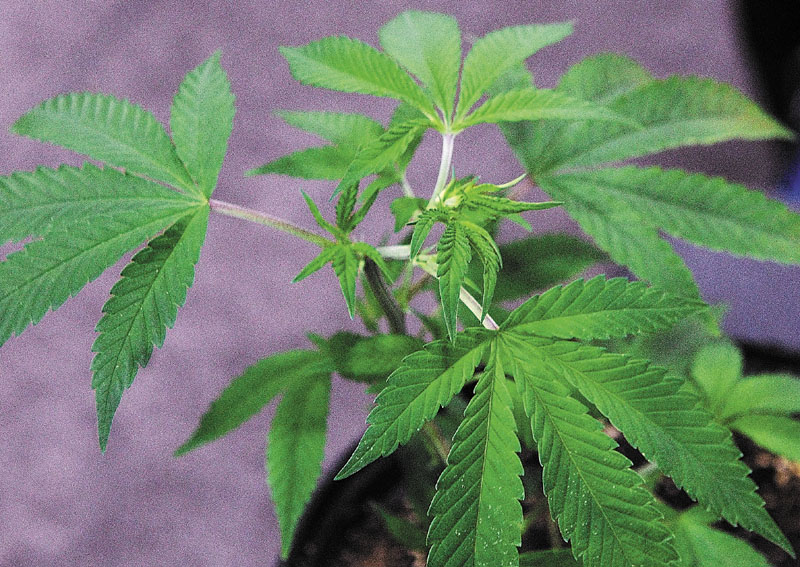The Maine Department of Health and Human Services on Wednesday released a set of new proposed rules for the state’s medical marijuana program.
The proposed rules, in response to a law passed last year that liberalized state laws, would be the first update since 2010, the year the department implemented the program. Maine citizens voted in 2009 to establish state-licensed dispensaries to distribute marijuana and a state identification system to keep track of patients, who must have one or more of a list of specific conditions.
The liberalizing bill, L.D. 1296, signed in 2011 by Gov. Paul LePage and sponsored by Rep. Deborah Sanderson, R-Chelsea, made the identification system optional, among other changes.
The state has been working broadly under that law since last year, but without an updated rule set.
“We’ve been doing it voluntarily, but we have to have rules that tell me and the people that work with me how we implement this,” said John Thiele, medical marijuana program director for the Division of Licensing and Regulatory Services at the DHHS.
A letter from division Director Kenneth Albert to interested parties summarizes main proposed changes to existing rules. It includes the relaxation of the registry and related provisions, such as expunging patient medical information from state records.
It also affirms that law enforcement officers can’t seize marijuana belonging to a patient, caregiver or dispensary “except when necessary for an ongoing criminal or civil investigation,” but says they can seize marijuana over the legal limit for those groups.
Overall, Sanderson said she was happy with the proposed set of rules released by the state.
However, she and one of Maine’s top caregiver advocates question one piece of the proposed language that specifies the type of facility marijuana must be grown in, both inside and outside.
“I just want to make sure we do it right the first time,” she said. “I’m … thrilled they acknowledged the intent (of her bill) was for folks to grow outside.”
Paul McCarrier, legislative liaison for Medical Marijuana Caregivers of Maine, said the section of the rules defining an “enclosed locked facility” are overburdening for small-time growers and violates the law’s intent. That overarching language is in the rules that went into place in 2010, but with little clarifying detail.
The proposed rules say all marijuana cultivation, even outdoors, would have to occur behind a privacy fence that is at least 8 feet high and totally obscures the product, with exterior lighting “sufficient to deter nuisance activity and facilitate surveillance.” It also would have to be located at the grower’s place of residence.
“Most fences go 6 feet,” Sanderson said. “If you go 8 feet, that’s going to cost above and beyond.”
McCarrier said the changes could force small-time growers who may not be able to meet the requirement to locate grows in “hidden, rural areas,” where children and criminals could have easier access to the marijuana.
“These rules would, A, turn them into criminals; and B, make them turn to the state for opioids,” he said. “It’s also going to cost a lot more money.”
Sanderson said when the DHHS first drafted the rules and presented them to her and LePage’s chief counsel, Dan Billings, they included a provision that independent growers would have to have security cameras and keep tapes for 14 days. She said she pushed back on that rule, and it was removed.
“I thought that was a little bit much,” she said. “You don’t have to go and build Fort Knox.”
McCarrier said his group will be looking to change certain pieces in the set of proposed rules, including the structural restrictions.
A public hearing on the proposed rules is scheduled for Aug. 13 at 1 p.m. in the Health and Human Services Committee Room 209 in the Cross Office Building in Augusta. The deadline for public comment on proposed changes is Aug. 23.
“We’ve had a successful program for the past two years where people have been able to grow in reasonably fenced-in areas,” McCarrier said, “and there’s no reason to stop that now.”
Send questions/comments to the editors.



Comments are no longer available on this story